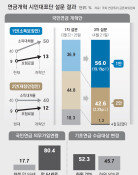Lithium Development in Bolivia
Chinese leaders including President Hu Jintao have stepped up efforts for resource diplomacy, visiting resource-rich countries and pledging massive loans and debt write-offs. In pursuing resource diplomacy, Beijing does not care if a government is authoritarian or violates human rights. An authoritarian government is known to have asked for money from China in return for resource development rights. In a 2006 visit to Africa, then Chinese Vice President Zeng Qinghong repeatedly said, We dont care. In securing resources, Beijing has no interest in the internal politics of the supplier. Based on this attitude, China has beat other countries in securing major oil fields and mines around the world.
India has also begun efforts to secure resources. Not to be outdone, Japan is also pursuing comprehensive economic assistance for resource-rich nations through loans and infrastructure construction such as power plants and roads. This has sparked a fierce global competition for resources. President Lee Myung-bak has also stressed packaged resource diplomacy since his election in 2007. The plan seeks to contribute to the advancement of a resource-rich country by developing resources and investing in infrastructure at the same time.
The kinds of resources that countries want change according to industrial development stage. In the past, countries focused on oil, iron ore and coal but rare metals with limited reserves are now popular because of their necessity in IT products and high-tech industries. A representative rare metal is lithium, which is needed for high-performance batteries, a core component for environmentally friendly cars. No matter how excellent technology is, mobile phones and cars cannot be developed without lithium.
In Seoul Thursday, Bolivian President Evo Morales agreed on Korean corporate participation in his countrys lithium development at a meeting with President Lee. The two leaders also signed a memorandum of understanding on developing lithium mines given that Bolivia has the worlds largest lithium reserves. If negotiations go well, a consortium of Korean companies will help build lithium battery factories in the Latin American country. Seoul has many hurdles to overcome before the final contract, however. It also needs to beat other countries seeking to secure lithium such as Japan, China and France. Hopefully, Korea will seal the deal and become an exemplary model for resource diplomacy and investment.
Editorial Writer Park Yeong-gyun (parkyk@donga.com)







